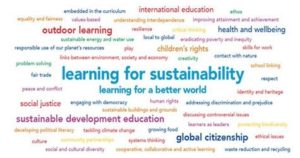Poverty and the Environment
 The United Nations 1998 Human Development Report revealed that, globally the 20% of the world’s people in the highest-income countries account for 86% of total private consumption expenditures while the poorest 20% only account for 1.3%.
The United Nations 1998 Human Development Report revealed that, globally the 20% of the world’s people in the highest-income countries account for 86% of total private consumption expenditures while the poorest 20% only account for 1.3%.
Undoubtedly, the average living standards has continued to rise with the gap between the rich and the poor widening, to what extent COVID has further impacted on this is not yet fully understood. Certainly the Audit Scotland / Accounts Commission report on the poverty-related attainment gap and Scottish education shows that the impact of poverty on children’s life chances remains a matter of great concern, with calls for more to be done to better support children and young people living in poverty.
Issues about the environment, economics and politics are inter-related through the way humans interact with their surroundings and with each other.
Learning for sustainability (LfS) is an approach to life and learning which enables learners, educators, schools and their wider communities to build a socially-just, sustainable and equitable society. A summary of key learning for sustainability resources available on Educations Scotland’s National Improvement Hub can be found here.
Education Scotland’s Countdown to COP26 page highlights key resources, events and activities available to help engage learners as Scotland prepares to host the United Nations COP26 Climate Summit in November 2021.
